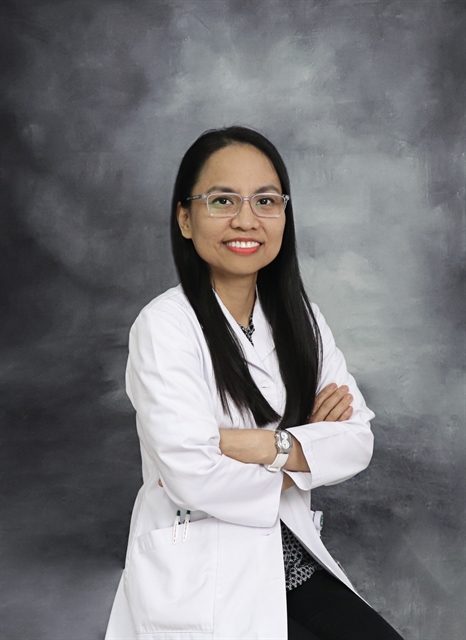[ad_1]

Dr Cynthia Dacanay*
As we observe World Mental Health Day on October 10, let us help increase awareness, and remove the stigma and discrimination against mental health illness.
Mental health illness is a condition that affects one’s thoughts or emotions and can influence one’s daily activities and interactions with other people. Statistics show that is far more common than many realise. The World Health Organization (WHO) states that about 450 million people currently suffer from this condition and that one out of four people will be affected by it at some point in their lives. Around 10-20 per cent of children and adolescent worldwide are affected, half of which starts by the age of 14. About two-thirds of them are not getting the help that they need because of neglect, stigma, and discrimination.
It is not due to a single cause. One’s genes, brain chemistry, life experiences such as trauma or stress, and bad habits such as drug or alcohol abuse are just some of the possible interlinked causes.
For parents, recognising whether a child’s emotions, behaviours or thoughts might be typical of their age or are signs of a physical or mental illness is not an easy task.
In adolescents, some telling clues may include:
- Extreme mood changes
- Intense worry, fear, sadness or anger
- Changes in sleeping and eating habits
- Alone most of the time and avoids even their friends
- Difficult to concentrate or learn
- Unable to handle daily problems or stress
- Complains of multiple aches without obvious causes
- Has delusions or hallucinations
- Drug or alcohol overuse
- Attempts to harm or kill oneself or thinks about it.
In young children, the following symptoms should raise suspicion:
- Hyperactive behaviour
- Changes in school performance
- Recurrent nightmares
- Frequent temper tantrums
- Repeated aggressive behaviour or disobedience
Once any of the above symptoms are noted, seek help from a mental health professional. Just like any other physical ailments, mental illness can be treated. The likelihood of recovery is greater if treatment is started early. Options may include taking medications, counselling, social support and education.
With proper treatment, people suffering from mental health illness can live productive lives and contribute significantly to society. Family Medical Practice
*Dr Cynthia Dacanay, a member of the Philippine Medical Association since 2001, completed her training as a general paediatrician in 2005 and was inducted as a diplomat of the Philippine Pediatric Society in 2009. Prior to coming to Việt Nam in 2011, she was a pediatric consultant in several tertiary hospitals in the Philippines. She is a certified provider of Basic Life Support (BLS), Advanced Cardiac Life Support (ACLS) and Pediatric Advanced Life Support (PALS). She loves to travel and read books in her spare time.
Family Medical Practice was the first foreign-owned primary healthcare provider in Việt Nam and has consistently remained at the forefront of international-standard medicine since 1995. It offers extensive healthcare and emergency medical services nationwide to Vietnamese, expatriate and corporate customers.
For more advice on any medical topics, visit Family Medical Practice Hanoi at: 298 I Kim Mã, Ba Đình. Tel: (024) 3843 0748. E: hanoi@vietnammedicalpractice.com.
FMP’s downtown Hồ Chí Minh location is: Diamond Plaza, 34 Lê Duẩn, District 1; 95 Thảo Điền, District 2. Tel: (028) 38227848. E: hcmc@vietnammedicalpractice.com
FMP Đà Nẵng is located at 96-98 Nguyễn Văn Linh, Hải Châu District, Đà Nẵng. Tel: (0236) 3582 699. E: danang@vietnammedicalpractice.com.
[ad_2]
Source link
